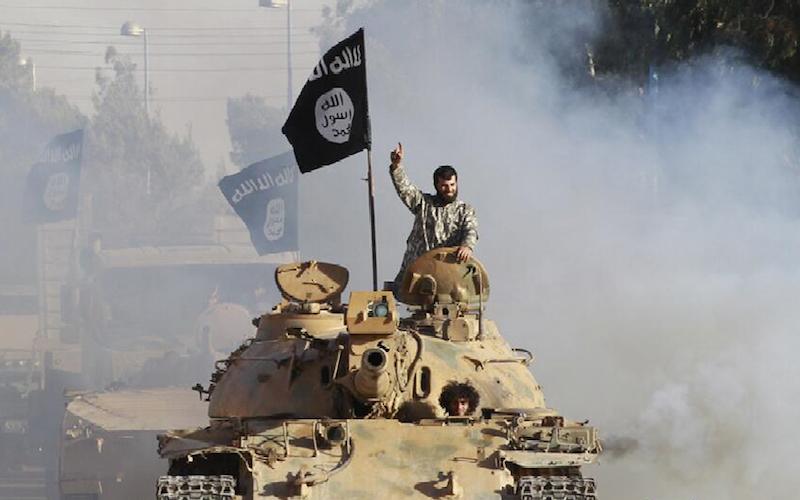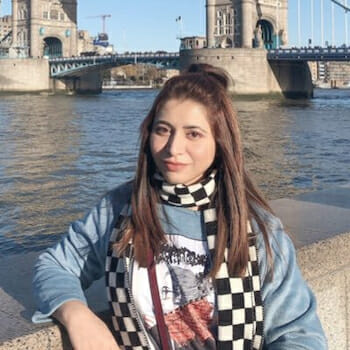
The Islamic State and Nukes
The expansion of the Islamic State into Eastern Afghanistan and across borders suggests several hypothetical scenarios whereby it could obtain a nuclear weapon. The footprints of IS has alarmed neighboring countries including Russia, Pakistan and Central Asian states but has also revived the debate on threats of nuclear terrorism. Lately, several stories claim that IS is infinitely closer to buying or stealing a nuclear bomb specifically from Pakistan. Indian officials have also recently expressed these fears. How real and feasible is the threat?
Pragmatically, nuclear analysts believe that IS may succeed in conducting a nuclear explosion if they: 1) construct or acquire a warhead 2) acquire a means of deliver and 3) have the will to use it on a targeted area. There are four possible scenarios. First, they may attempt to produce highly enriched uranium or plutonium to fuel a nuclear bomb. This option is most difficult and less likely to happen because manufacturing fissile material is complicated. Second, IS may look for a state-sponsor that already has nuclear weapons. This option sounds the easiest but experts believe it is not likely to happen, because states are unlikely to share this valuable product with non-state actors nor would a state be willing to risk sharing a nuclear weapon with terrorists which could be used against them. Even no state, thus far at least, has ever given another state (even friendly allies) a nuclear weapon. For instance, during the cold war North Korea tried to acquire nuclear weapons from its close allies but was firmly refused. Third, IS could steal a nuclear weapon. However, this would be difficult. Even if terrorists succeed in acquiring a nuclear weapon it would be impossible for them to break the security features.
Charles Ferguson, President of the Federation of American Scientists (FAS) stressed, “You’d have to run it through a specific sequence of events, including changes in temperature, pressure and environmental conditions before the weapon would allow itself to be armed, for the fuses to fall into place and then for it to allow itself to be fired. You do not get it off the shelf, enter a code and have it go off.”
If the terrorists seek help, there are very few who know how to detonate a nuclear bomb. Those who work with nuclear weapons are trained to understand only a few functions. No one has the complete knowledge about how the weapon works or how to detonate it. Fourth, there is a huge possibility that any terrorist group may seek to buy fissile material from the black market or may seek to steal it from civilian or military facilities. Most of the nuclear security analysts are of the opinion that a terrorist may pursue this option as it appears most suitable for the manufacture of a nuclear weapon. However, analyst Robin Frost opined “there seems to be no real commercial market for fissile material, each sale would be a one-time affair, not a continuing source of profit like drugs, and there is no evidence of an established underworld commercial trade in this illicit commodity.” On the contrary, any of the risks highlighted above, pose a threat to all states possessing nuclear technology. Any country having nuclear weapons or running and operating NPPs share the same concerns and vulnerabilities. Pakistan is not an exception.
Notwithstanding the technicalities involved in stealing or handling nuclear weapon, Pakistan is frequently brought up in the context of nuclear sabotage by IS. Generally, the attacks on GHQ, Mehran and Kamra bases are portrayed as vulnerable facilities to terrorists, but the physical security of nuclear installations is much more secure than other defense installations. Even under chaotic conditions, nuclear weapons would remain under heavily guarded security. The nuclear installations are protected by multilayered security systems and each one is a no-fly zone, guarded by special trained forces and intelligence, monitored by sensitive sensors, cameras and equipment. The impression that few thousands militants could take control of a country with population of 190 million and a large army is not realistic.
Significantly, in order to enhance secrecy and survivability, Pakistan reportedly has not revealed sensitive information about its nuclear weapons, Pakistan’s nukes are stored in a disassembled form and cores of fissile material are stored separately from nuclear weapons. Pakistan must have installed the coded-secured devices that are accessed by entering a secret code to arm an assembled nuclear warhead, As General Khalid Kidwai described Pakistan’s nuclear system as ‘functional equivalent’ of permissive action links (PALs). This means that in addition to coding, Pakistan’s nuclear weapons might also be comprised of environmental sensing devices that would assure a specific environment before the warhead can be set off.
Shaun Gregory remarked, “In the fifteen years since Pakistan emerged as an operational nuclear weapons state in 1998 there has been no credible report of a terrorist seizure of nuclear weapons or nuclear-weapons related material in Pakistan, nor of terrorists penetrating and holding space within a confirmed nuclear weapons facility such as might allow them to gain access to, or otherwise create a threat with, nuclear weapons or nuclear weapons related material. This track-record, and indeed Pakistan’s similarly unblemished history during the decades since the 1950s over which Pakistan’s nuclear weapons program has reached maturity, has persuaded many within and outside Pakistan that the risk of a terrorist threat to Pakistan’s nuclear weapons is at best overstated and at worst a myth designed to impugn the reputation of Pakistan and its Army.”
In reality, it is highly unlikely that IS could acquire nuclear weaponry from Pakistan or from many other nations for that matter.

